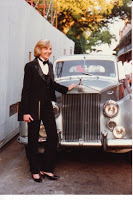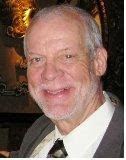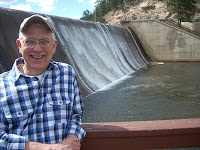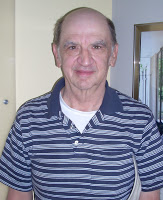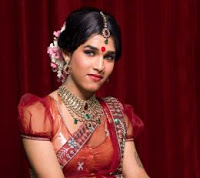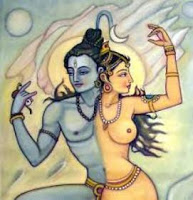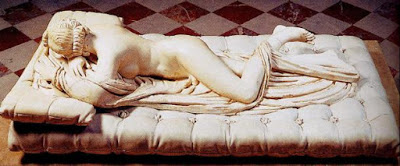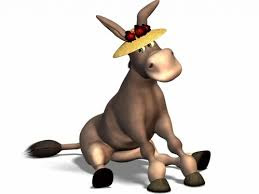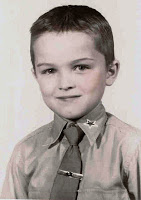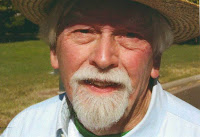On the third day out from
having been immersed in the music of GALA Choruses Festival X for six days and
nights, with songs and melodies and harmonies and words swirling around in my
brain and my heart, I feel compelled to write down just a few stories from my
own personal experiences at the Festival to illustrate the Power of Music to
heal our souls and perhaps even to transform the world.
having been immersed in the music of GALA Choruses Festival X for six days and
nights, with songs and melodies and harmonies and words swirling around in my
brain and my heart, I feel compelled to write down just a few stories from my
own personal experiences at the Festival to illustrate the Power of Music to
heal our souls and perhaps even to transform the world.
On Saturday, July 2,
2016, 6,600 gay and lesbian people from around the world showed up in Denver,
Colorado at our esteemed Performing Arts Complex with one goal in mind: To Sing.
There were over 200 choruses and ensembles who had been scheduled to
perform for each other at Boettcher Concert Hall, Temple Buell Theater, Ellie
Caulkins Opera House, the smaller Stage Theater, and the gigantic 5,000-seat
Bellco Theater.
2016, 6,600 gay and lesbian people from around the world showed up in Denver,
Colorado at our esteemed Performing Arts Complex with one goal in mind: To Sing.
There were over 200 choruses and ensembles who had been scheduled to
perform for each other at Boettcher Concert Hall, Temple Buell Theater, Ellie
Caulkins Opera House, the smaller Stage Theater, and the gigantic 5,000-seat
Bellco Theater.
The buzz in the air was
palpable at registration, lifting us to another plane before the music even
began. And then it started — with over
400 voices from all of the Colorado GLBT choruses lined up on four levels of
the parking garage, overlooking the Galleria outside the theaters.
palpable at registration, lifting us to another plane before the music even
began. And then it started — with over
400 voices from all of the Colorado GLBT choruses lined up on four levels of
the parking garage, overlooking the Galleria outside the theaters.
The trumpets began and
the voices rang out with a special power as they proclaimed “In praise of song”
that echoed throughout the space in the garage and the covered Galleria, so
that the sound appeared to emanate straight from heaven itself.
the voices rang out with a special power as they proclaimed “In praise of song”
that echoed throughout the space in the garage and the covered Galleria, so
that the sound appeared to emanate straight from heaven itself.
This was followed by a
big and stirring arrangement of “America the Beautiful,” during which song
several large banners on the different levels were unfurled that said, “We
Stand With Orlando.” Coming so soon
after the worst mass shooting in American history at a gay nightclub in
Orlando, Florida, the mass chorus added a verse for those we had lost, and
ended the song after the last verse with a rousing “America, America, America,”
each higher and louder and with more harmony than the one before. Chill bumps and tears came easily and
naturally. And a measure of pride that
said, “Those are MY PEOPLE singing that!”
big and stirring arrangement of “America the Beautiful,” during which song
several large banners on the different levels were unfurled that said, “We
Stand With Orlando.” Coming so soon
after the worst mass shooting in American history at a gay nightclub in
Orlando, Florida, the mass chorus added a verse for those we had lost, and
ended the song after the last verse with a rousing “America, America, America,”
each higher and louder and with more harmony than the one before. Chill bumps and tears came easily and
naturally. And a measure of pride that
said, “Those are MY PEOPLE singing that!”
Then came the third piece
commissioned for the occasion and conducted by the composer, “Mountains and
Rivers,” a song about Colorado to give a rousing welcome to everyone at the
Festival.
commissioned for the occasion and conducted by the composer, “Mountains and
Rivers,” a song about Colorado to give a rousing welcome to everyone at the
Festival.
All this and we had not
even started yet. On to Boettcher for
the Opening Ceremony, so to speak, featuring several choruses, including the
New York City Gay Men’s Chorus, One Voice mixed chorus from Minneapolis, the
Atlanta mixed chorus, the San Diego Women’s Chorus, and Take Note from Denver,
all singing in the round throughout the hall.
And this concert had to be repeated to accommodate all of the attendees.
even started yet. On to Boettcher for
the Opening Ceremony, so to speak, featuring several choruses, including the
New York City Gay Men’s Chorus, One Voice mixed chorus from Minneapolis, the
Atlanta mixed chorus, the San Diego Women’s Chorus, and Take Note from Denver,
all singing in the round throughout the hall.
And this concert had to be repeated to accommodate all of the attendees.
Keep in mind that, in
order to give everyone a chance to perform for at least a half-hour set,
concerts were happening in these three halls simultaneously mornings and
afternoons every day of the week, making it impossible to hear everyone and
forcing us to choose what to attend, and where and when. So I can only comment on a few that Judith
and I attended, with no intention to leave anyone out. We heard about 50 choruses out of 200, so
there were many that we unfortunately missed.
order to give everyone a chance to perform for at least a half-hour set,
concerts were happening in these three halls simultaneously mornings and
afternoons every day of the week, making it impossible to hear everyone and
forcing us to choose what to attend, and where and when. So I can only comment on a few that Judith
and I attended, with no intention to leave anyone out. We heard about 50 choruses out of 200, so
there were many that we unfortunately missed.
Probably the most moving
and memorable moment of the Festival came on the second day in Ellie Calkins
Opera House. It was during the 3 to 5
p.m. “block concert,” each of which featured four different choruses. The last choir to perform in this block was
the Orlando Gay Chorus. Every seat in
Ellie was taken and people were standing behind every section in the
audience. As approximately 65 men and women
took the stage and got onto the risers, there was a several-minutes-long
standing ovation before they sounded a note.
and memorable moment of the Festival came on the second day in Ellie Calkins
Opera House. It was during the 3 to 5
p.m. “block concert,” each of which featured four different choruses. The last choir to perform in this block was
the Orlando Gay Chorus. Every seat in
Ellie was taken and people were standing behind every section in the
audience. As approximately 65 men and women
took the stage and got onto the risers, there was a several-minutes-long
standing ovation before they sounded a note.
The conductor took the
podium and they sang three or four songs.
Then he grabbed the microphone and began talking about the Pulse
Nightclub shooting and how it had shocked their whole community, and that their
chorus had come together and answered the call to help to heal the LGBTs and
everyone else in their city by singing at over 20 different events, vigils, and
memorial services within the last two weeks.
Then he said, “If you know this next song, sing along with us.” The song was “You’ll Never Walk Alone.”
podium and they sang three or four songs.
Then he grabbed the microphone and began talking about the Pulse
Nightclub shooting and how it had shocked their whole community, and that their
chorus had come together and answered the call to help to heal the LGBTs and
everyone else in their city by singing at over 20 different events, vigils, and
memorial services within the last two weeks.
Then he said, “If you know this next song, sing along with us.” The song was “You’ll Never Walk Alone.”
Well, 2,000 singers in
the audience joined with the Orlando chorus and we all raised our voices in a
gorgeous mutual message of assurance that gave that song more meaning than it
had ever had before. The second time
through everyone was standing and holding hands as tears flowed freely down our
collective cheeks. No one who was there
will ever forget it.
the audience joined with the Orlando chorus and we all raised our voices in a
gorgeous mutual message of assurance that gave that song more meaning than it
had ever had before. The second time
through everyone was standing and holding hands as tears flowed freely down our
collective cheeks. No one who was there
will ever forget it.
On the way out of the
theater, as the Orlando Chorus filed through the lobby and into the Galleria
outside, they were surrounded by 2,000 cheering and clapping and hugging
fans. They said they had never
experienced such love.
theater, as the Orlando Chorus filed through the lobby and into the Galleria
outside, they were surrounded by 2,000 cheering and clapping and hugging
fans. They said they had never
experienced such love.
Just to mention a few
other highlights:
other highlights:
1. A chorus of 1,000 gay men with orchestra in
the Bellco Theater singing “I Am Harvey Milk” cantata with the composer from
Broadway singing the part of Harvey Milk.
the Bellco Theater singing “I Am Harvey Milk” cantata with the composer from
Broadway singing the part of Harvey Milk.
2. The Seattle Men’s Chorus performing with the
Seattle Women’s Chorus on stage at the Buell Theater for a mixed chorus of
approximately 300 people singing a stunning arrangement of “I Love You” and
“What A Wonderful World.”
Seattle Women’s Chorus on stage at the Buell Theater for a mixed chorus of
approximately 300 people singing a stunning arrangement of “I Love You” and
“What A Wonderful World.”
3. The Las Vegas Men’s Chorus singing a deeply
moving song called “Tell My Father” from the Civil War musical.
moving song called “Tell My Father” from the Civil War musical.
4. One Voice mixed chorus from Charlotte singing
about “Glenda and Lauree: Certain Kinds of Love Never Die.”
about “Glenda and Lauree: Certain Kinds of Love Never Die.”
5. Our Song: The Atlanta Gay and Lesbian Chorus
singing and staging Eric Whitacre’s “Fly To Paradise.”
singing and staging Eric Whitacre’s “Fly To Paradise.”
6. The 200-voice Turtle Creek Chorale from
Dallas singing “Angels Calling.”
Dallas singing “Angels Calling.”
7. Combined choirs at the Opening Concert singing
“Glory” from the movie Selma.
“Glory” from the movie Selma.
8. The Classical Masterworks Singalong in
Boettcher where hundreds of us got to sing with the Colorado Symphony Orchestra
on some famous choruses by Bach, Handel, Mozart, Brahms, Verdi, etc.
Boettcher where hundreds of us got to sing with the Colorado Symphony Orchestra
on some famous choruses by Bach, Handel, Mozart, Brahms, Verdi, etc.
9. International groups such as Mano a Mano,
five fabulous flamboyant men from Cuba; Homonics, three men in suits from
Dublin, Ireland; the European Queer Choir; Schola
Cantorosa, 25 excellent singers from Hamburg, Germany; the Beijing Queer
Choir, 12 darling women and men from China who were able to remove their masks
for the first time; and a combined International Chorus at the Closing Concert
singing “Imagine.”
five fabulous flamboyant men from Cuba; Homonics, three men in suits from
Dublin, Ireland; the European Queer Choir; Schola
Cantorosa, 25 excellent singers from Hamburg, Germany; the Beijing Queer
Choir, 12 darling women and men from China who were able to remove their masks
for the first time; and a combined International Chorus at the Closing Concert
singing “Imagine.”
10. The Boston Gay Men’s Chorus recounting their
tour to the Middle East.
tour to the Middle East.
11. Charis – St. Louis Women’s Chorus doing
“Sometimes we have to sing in unison, Sometimes we have to sing in harmony.”
“Sometimes we have to sing in unison, Sometimes we have to sing in harmony.”
12. Denver Women’s Chorus singing “An
Exhortation,” words by Barack Obama, and “You Are My Music.”
Exhortation,” words by Barack Obama, and “You Are My Music.”
13. Des Moines Gay Men’s Chorus, when the woman
conductor walked out onto the stage, had everyone in Boettcher stand, and on
July 4 conducted all of us in the best “Star Spangled Banner” I have ever
heard.
conductor walked out onto the stage, had everyone in Boettcher stand, and on
July 4 conducted all of us in the best “Star Spangled Banner” I have ever
heard.
14. Jubilate! The Women’s Chorus of Corvallis,
Oregon, singing “Endangered Species” by Denver’s own Diane Reeves.
Oregon, singing “Endangered Species” by Denver’s own Diane Reeves.
15. The largest and arguably the best – San
Francisco Gay Men’s Chorus – at least 300 men in tuxes and top hats overflowing
the risers at Boettcher and singing Broadway and more.
Francisco Gay Men’s Chorus – at least 300 men in tuxes and top hats overflowing
the risers at Boettcher and singing Broadway and more.
16. The Turtle Creek Chorale Chamber Chorus doing
“Come Ye Disconsolate,” including the text, “Earth has no sorrow that heaven
cannot heal.”
“Come Ye Disconsolate,” including the text, “Earth has no sorrow that heaven
cannot heal.”
As you can tell, I could
go on and on. Maybe from this small
sampling you get the idea. The GALA
Festival that happens every four years is a coming together of GLBT voices that
is at the same time joyful and healing and powerful and unifying. It is life-affirming and life-changing.
go on and on. Maybe from this small
sampling you get the idea. The GALA
Festival that happens every four years is a coming together of GLBT voices that
is at the same time joyful and healing and powerful and unifying. It is life-affirming and life-changing.
When I was conducting
GALA choruses years ago, I had a motto:
“Make ‘em laugh, make ‘em cry, and inspire ‘em.” This Festival did all of that and more. As they said at the end of the week, “We have
started a song and it cannot stop.”
GALA choruses years ago, I had a motto:
“Make ‘em laugh, make ‘em cry, and inspire ‘em.” This Festival did all of that and more. As they said at the end of the week, “We have
started a song and it cannot stop.”
GALA Festival X has 6,600
stories. This has been one of them.
stories. This has been one of them.
© 19 Jul 2016
About
the Author
the Author
I was born in Louisiana in
1939, went to Southern Methodist University in Dallas from 1957 through 1963,
with majors in sacred music and choral conducting, was a minister of music for
a large Methodist church in Houston for four years, and was fired for being gay
in 1967. After five years of searching,
I settled in Denver and spent 30 years here as a freelance court reporter. From 1980 forward I have been involved with
PFLAG Denver, and started and conducted four GLBT choruses: the PFLAG Festival Chorus, the Denver Women’s
Chorus, the Celebration ’90 Festival Chorus for the Gay Games in Vancouver, and
Harmony. I am enjoying my 11-year
retirement with my life partner of 32 years, Judith Nelson, riding our bikes, going
to concerts, and writing stories for the great SAGE group.
1939, went to Southern Methodist University in Dallas from 1957 through 1963,
with majors in sacred music and choral conducting, was a minister of music for
a large Methodist church in Houston for four years, and was fired for being gay
in 1967. After five years of searching,
I settled in Denver and spent 30 years here as a freelance court reporter. From 1980 forward I have been involved with
PFLAG Denver, and started and conducted four GLBT choruses: the PFLAG Festival Chorus, the Denver Women’s
Chorus, the Celebration ’90 Festival Chorus for the Gay Games in Vancouver, and
Harmony. I am enjoying my 11-year
retirement with my life partner of 32 years, Judith Nelson, riding our bikes, going
to concerts, and writing stories for the great SAGE group.
